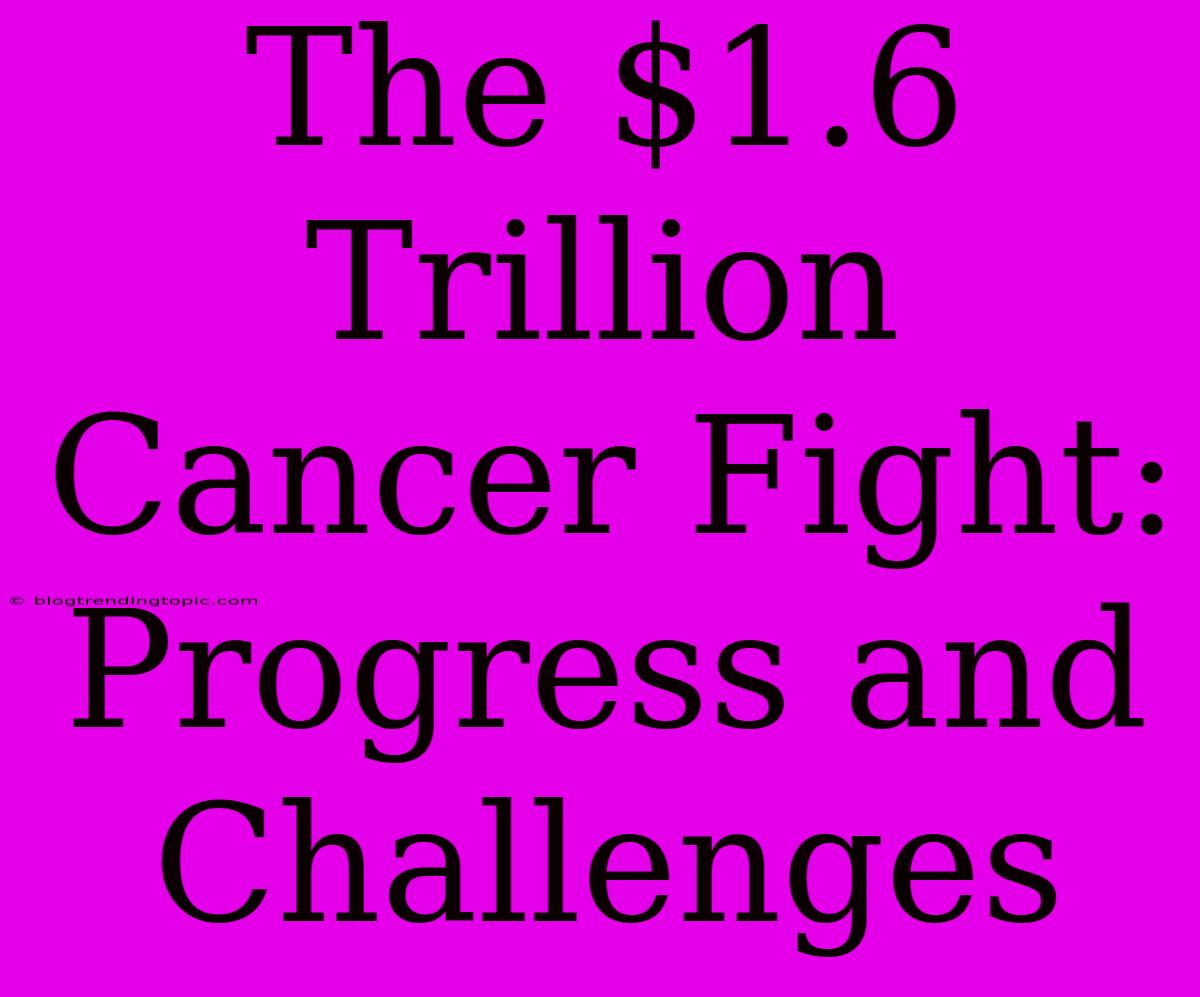The $1.6 Trillion Cancer Fight: Progress and Challenges
Cancer, a devastating disease affecting millions worldwide, is a formidable foe that requires relentless research and innovation. The global fight against cancer is a multi-faceted endeavor, marked by both significant progress and persistent challenges. With an estimated $1.6 trillion spent on cancer care annually, the world is investing heavily in finding cures and improving treatment options.
Progress in the Fight: New Treatments and Prevention Strategies
The landscape of cancer treatment has dramatically transformed in recent decades. Here are some key advancements:
-
Targeted Therapies: Precision medicine has revolutionized cancer treatment, allowing doctors to identify specific genetic mutations within a tumor and target them with drugs designed to attack those specific weaknesses. This approach offers more personalized treatment and often results in fewer side effects.
-
Immunotherapy: This revolutionary approach harnesses the power of the immune system to fight cancer. Immunotherapy drugs stimulate the body's natural defenses to recognize and destroy cancerous cells, offering long-term remission for some patients.
-
Early Detection: Technological advancements have led to improved screening tools, allowing for earlier detection of cancer, which significantly increases survival rates.
-
Prevention Strategies: Public awareness campaigns, lifestyle modifications, and the development of vaccines for certain cancers are reducing the incidence of the disease.
Challenges Still Remain:
Despite the remarkable progress, the fight against cancer is far from over. Several challenges persist:
-
Access to Treatment: In many parts of the world, especially in low- and middle-income countries, access to advanced cancer treatments remains limited due to financial constraints and infrastructure limitations.
-
Drug Resistance: Some cancers develop resistance to existing therapies, necessitating the development of new and more effective drugs.
-
Side Effects: Many cancer treatments, particularly chemotherapy, can have severe side effects that impact patients' quality of life.
-
Funding Gaps: While significant resources are directed towards cancer research, funding gaps still exist for certain areas, including research on rare cancers and the development of new prevention strategies.
The Future of Cancer Research:
The fight against cancer requires continued investment in research, innovation, and collaboration. Here are some key areas of focus for the future:
-
Artificial Intelligence: AI is increasingly used to analyze large datasets, identify patterns, and develop new treatment strategies.
-
Nanotechnology: Nanomaterials offer the potential to deliver targeted therapies directly to cancerous cells, reducing side effects and improving efficacy.
-
Personalized Medicine: Continued advancements in genetic testing and other technologies will allow for even more personalized treatment plans tailored to individual patients' needs.
Conclusion:
The $1.6 trillion global investment in cancer care is a testament to the commitment to eradicating this devastating disease. While progress has been made, the challenges are significant. Continued investment in research, access to care, and prevention strategies will be critical in the fight against cancer. The future of cancer research holds great promise, with the potential to transform how we diagnose, treat, and ultimately defeat this complex disease.

